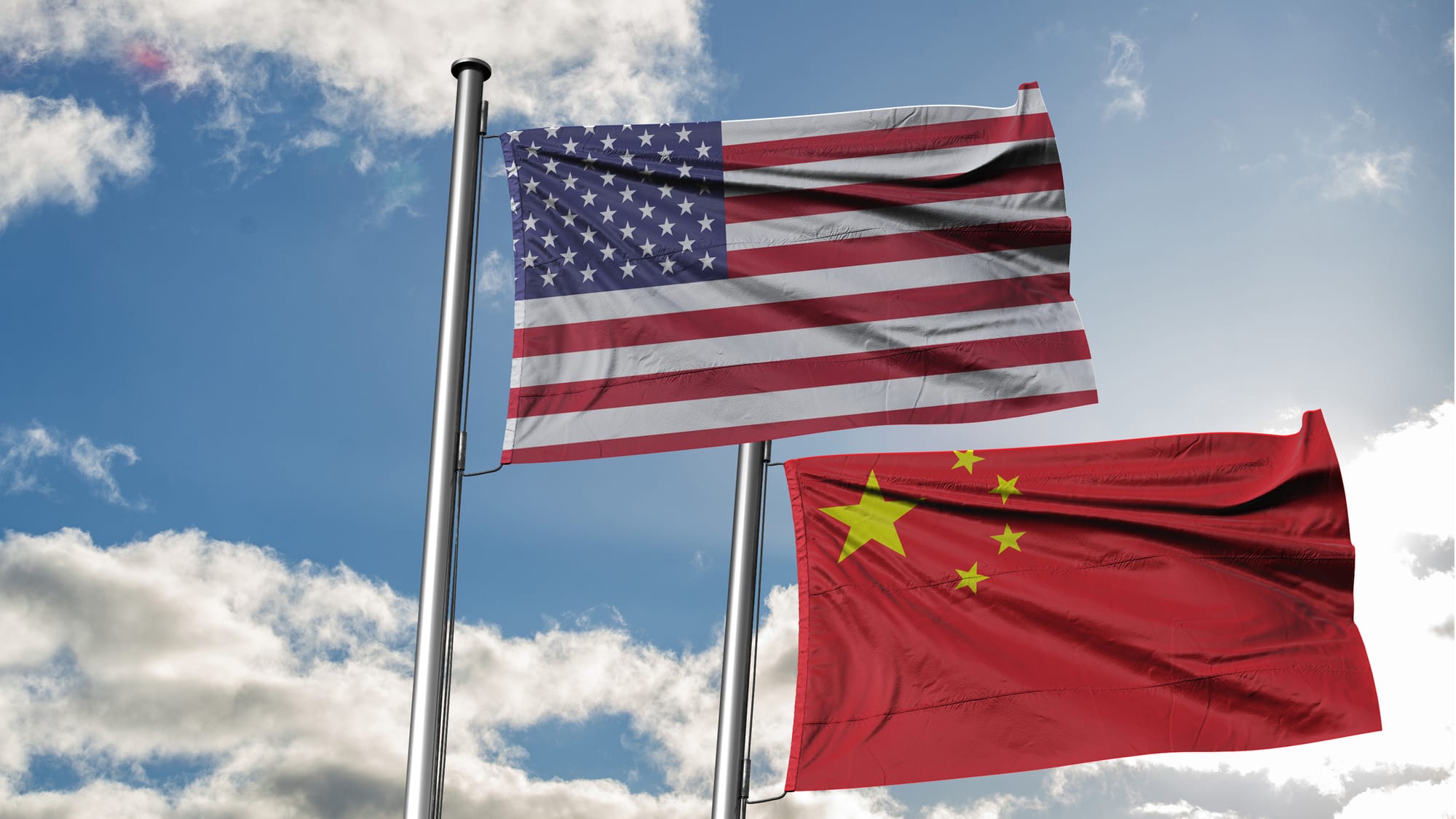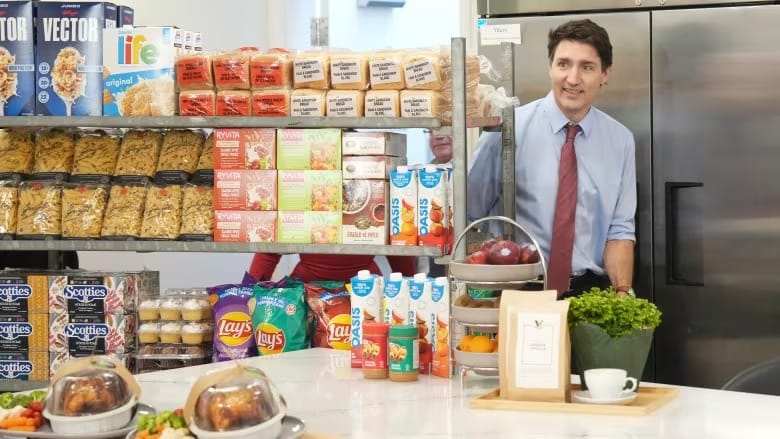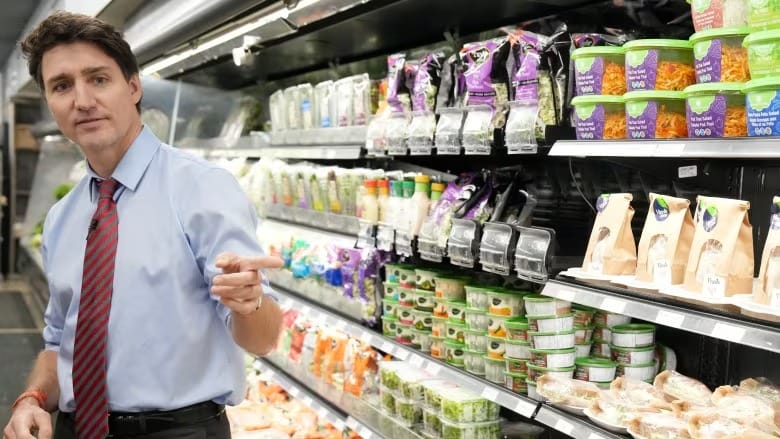China is ‘going to retaliate’ over Canada’s tariff hikes, experts say. How?
“China is not a country that just stands idly and accepts economic sanctions against it, which is really what happened.”

China is expected to retaliate against Canada following the federal government’s decision to increase tariffs on Chinese-made electric vehicles (EVs) and other materials, experts say, though the response is unlikely to pose a direct threat to Canadians.
On Monday, Canada imposed a 100 percent tariff on Chinese EVs and a 25 percent tariff on Chinese steel and aluminum. These measures align with similar tariff increases announced by the United States in May, aimed at countering what both countries describe as "unfair" Chinese subsidies for its EV industry, which they fear could flood the global market.
While Beijing has threatened retaliation against the U.S. following its tariff announcement, it has yet to take action. However, analysts caution that Canada should not expect to be exempt from Chinese retaliation.
"They’re going to retaliate," said Moshe Lander, an economics professor at Concordia University. "China is not a country that just stands idly and accepts economic sanctions against it, which is really what happened."
Experts, including Lander, suggest that China’s response to Canada may differ from its approach to the U.S., given the differences in the scale of their economies and what China believes it can leverage.
"U.S.-China dynamics are at a scale that is simply not the same for us," said Vina Nadjibulla, vice-president of research and strategy at the Asia Pacific Foundation of Canada.
Nadjibulla pointed out that China’s reaction might mirror its response to the European Union when the bloc imposed additional tariffs on Chinese EV imports, which reached as high as 36.3 percent. Last week, Beijing launched an anti-subsidy investigation into European dairy imports, widely seen as retaliation for the EU’s EV tariffs. Canada could face a similar retaliatory measure, possibly targeting agricultural exports.
"China could pick a sector and launch its own process to potentially then block some market access," Nadjibulla suggested.
China may also be waiting for the U.S. to finalize its tariff increases amid pushback from industries and lawmakers concerned about higher costs. A final decision from the U.S. is expected by the end of August.
Initially, the new U.S. tariffs were set to take effect on August 1 but were delayed to September as the U.S. Trade Representative’s office reviewed over 1,100 public comments. The EU has also reduced tariffs for some companies, including Tesla, which will face only a nine percent duty on imported Chinese components.
If the U.S. softens its tariffs, Canada may follow suit, which could influence China’s response.
"Given how integrated our auto sectors are, Canada I think will stay aligned with the U.S.," Nadjibulla said. "It just makes economic sense."

U.S. National Security Advisor Jake Sullivan, after meeting with the Liberal cabinet in Halifax on Sunday, emphasized the importance of U.S.-Canada alignment on Chinese tariffs but clarified that the U.S. was not pressuring Canada to follow its lead. He reiterated U.S. concerns about Chinese overcapacity in the EV industry and the associated national security risks.
"Being on the same page between the U.S. and Canada, particularly as we enter a year where Canada will be chairing the G7, is vital for U.S. national security, for our priorities, and we believe it’s vital for the broader free world as well," Sullivan said. "Canada will make its own determinations, but the U.S. does believe that a united front, a coordinated approach on these issues, benefits all of us."
At the same cabinet retreat on Monday, Foreign Affairs Minister Melanie Joly mentioned that she had discussed Canada’s potential EV tariffs during her visit to China this summer and had informed Beijing of Monday’s announcement. She hinted at further actions concerning China in the coming weeks.
"The fact that we are engaging with China diplomatically doesn’t mean that we can’t continue to defend our interests, and that’s exactly what we’ll continue to do and you’ll be seeing more of that in the coming weeks," Joly said.
When asked if the government was concerned about increased threats to Canadians in China due to the tariff decision, officials did not provide specific comments. Canada’s current travel advisory for China, last updated on August 8, advises Canadians to exercise a high degree of caution "due to the risk of arbitrary enforcement of local laws."
Global Affairs Canada stated that it would continue to monitor the situation with China closely.
Nadjibulla, whose ex-husband Michael Kovrig was detained in China for nearly three years, does not expect an increase in arbitrary detentions over economic disputes. "This could potentially raise the overall level of tension in the relationship, but arbitrary detention usually is used for other reasons, not in trade disputes," she said.
Lander warned that the tariff increase could create political challenges for future Canadian prime ministers, unless a clear exit strategy is established to reduce or remove the tariffs if China meets certain conditions, such as reducing its domestic subsidies.
"Whatever prime minister down the line says, I’m going to remove those tariffs on Chinese products, they’re going to be accused of kowtowing to China or giving into Chinese leverage," Lander said. "If you’re going to do something foolish, at least tell me when the foolishness stops."





